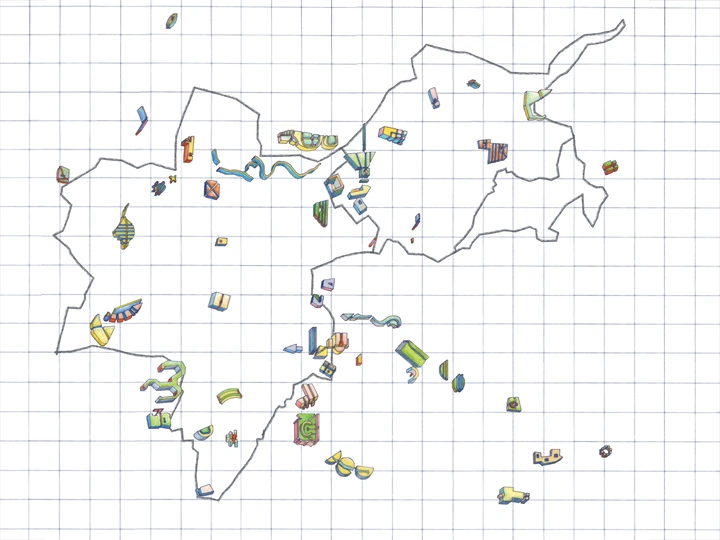Archipelago of Urban Gardens

Vesna Jovanović, born in former Yugoslavia in 1985, is an architect, territorial researcher and queer-feminist. She obtained her Master’s degree from the University of Belgrade, and a Postgraduate degree from the Berlage Institute in Rotterdam, before moving to Basel in 2011 where she lives and works to this day.
She was involved in territorial research and teaching at ETH Studio Basel from 2011 to 2015 where she cowrote and coedited the book “Territory – On the Development of Landscape and City” (Park Books, 2016). In 2014 she held an urban geography course at the Université de Neuchâtel on visualizing socioeconomic processes spatially in the territory, focusing on work-related migration. From 2021 to 2022 she was coordinating the ETH Zurich - EPFL joint Master of Advanced Studies in Urban and Territorial Design. In 2022 she was visiting guest professor at the KIT in Karlsruhe, where she worked with students on the design of new residential neighbourhoods that incorporated public spaces of food production, with the goal of establishing novel, productive relationships between urban edge agglomerations and the surrounding landscape.
Vesna Jovanović founded Cabineta in 2024 as a workroom to develop and test socially inclusive and ecologically responsible interventions in the built environment. Cabineta explores material and energy input reduction in the practice of building while conceiving adaptive, appropriable spaces where diverse groups of people can feel empowered.
This project began as a collaboration between an urbanist and a newly founded, women-led garden collective in Basel called “plankton”. The initial idea was to document the experiences of the collective into an open-source toolkit for those wanting to set up similar projects. It grew into ongoing research to showcase to the wider public and to planning professionals the social and ecological benefits of supporting diverse, small-scale urban gardens.
As the gardeners set out to realise their project of decentralised garden plots, they had difficulty to find and access land where regulations would allow all those things necessary for establishing a vegetable business. They found on the other hand great financial support from political institutions, as what they proposed were much needed innovative and sustainable ideas to tackle the challenges of climate change and biodiversity loss in the city by intervening in the food system. Why is there then a black spot in urban planning as to the needs of food producers? What hidden potentials for the spatial planning practices of cities would be unlocked if we considered the city and its surrounding landscapes as one interdependent system of material and energy exchange, and if we as planners better understood this social-ecological system?
Quality soils lie underneath asphalts. These same soils have recently been put into the service of repairing broken local ecologies. Yet food production remains outside of the equation, even though it has been shown that bringing food production nearer to the consumer inspires an equitable treatment of workers and soils. Scientific knowledge on soil formation and degradation, as well as landscape biocapacity, should inform urban development decisions. In imagining a post-exhaustion future for our planet, we need to foster new urban forms that do not remove potentials from surrounding lands, but indeed lay down new social-ecological foundations for coexistence and interdependency.